Stephen King is the most influential voice in horror of the late 20th century. His books have been best sellers since his debut and have gone on to spawn numerous adaptations in film, TV, video games, and other media. King Of All Media looks at those adaptations, starting with his TV miniseries in chronological order. Each week Alejandra Gonzalez and Rob Dean will discuss a new miniseries project of King’s — with today’s installment being on the first two parts of 1994’s THE STAND, directed by Mick Garris.
Rob Dean: Since its publication in 1978, people were interested in adapting Stephen King’s THE STAND. At the time, it was the most epic undertaking of the author’s career (later outshone by IT and then the entire DARK TOWER saga), and there’s always an audience for an apocalyptic story with obvious Judeo-Christian overtones. For a long time it was going to be a movie helmed by George Romero, but they couldn’t quite get it to work. But, following the successes of IT and TOMMYKNOCKERS, ABC decided to embark on the adaptation.
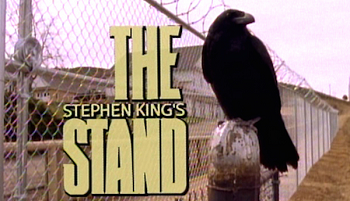
This is pretty funny, as King would often poo-poo the idea of it running on television, saying something to the effect that he couldn’t see the end of the world being brought to viewers by toilet paper and other advertisers. Which makes it pretty quaint in retrospect as, in 2018, the apocalypse occurs on TV on a weekly basis, thanks to THE WALKING DEAD and other programs.
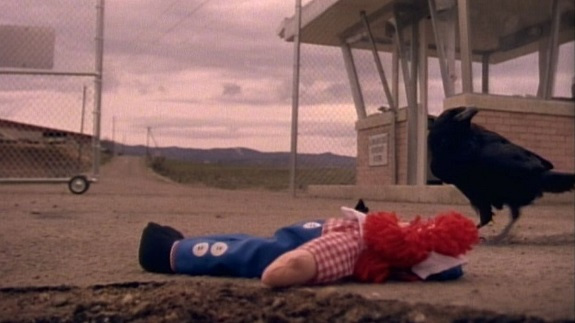
I loved this miniseries as a 12-year-old. I recorded each one on my VCR every night and watched them a bunch — something that struck home with me on this revisit, as I knew all of the dialogue in many scenes. I think the first two parts mostly hold up! Mick Garris doesn’t employ a lot of interesting visuals, King’s cornpoke dialogue doesn’t translate well to screen, and there’s a weird absence of any non-white people (except for magical black woman Mother Abigail).
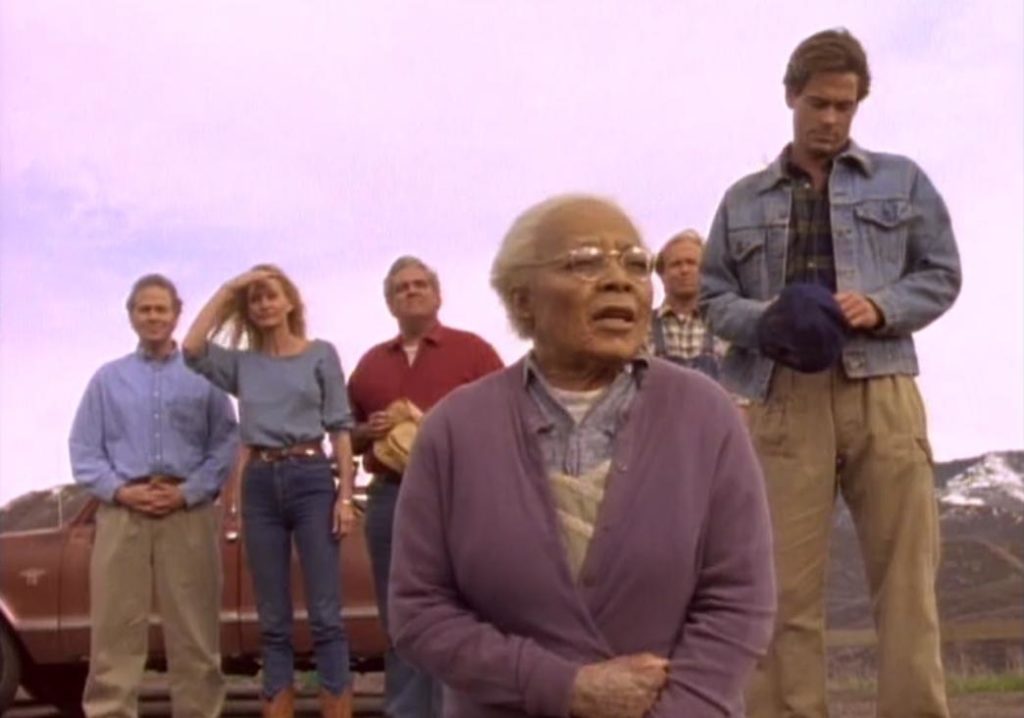
But, with those issues noted, I think the first two installments of THE STAND do a good job of setting the scene for what’s occurring and establishes the characters pretty well; though Lloyd and other future Flagg followers don’t get a fair introduction compared to Abigail’s acolytes. There’s a lot of prescient stuff about government misinformation, quarantines, and panic in the face of the superflu.
Is this your first time watching it, Ale? What did you think? While obviously two decades old and hamstrung by censors of the time and budgetary issues, how does this apocalypse hold up in your mind?
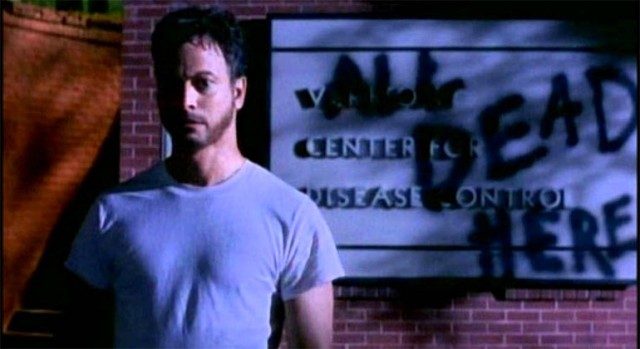
Alejandra Gonzalez: I’ve seen parts of this before, but this is the first time I sat down with THE STAND. I think, so far, this is the most objectively well-done mini-series we’ve covered (TOMMYKNOCKERS for life, though), and it’s hard to really find something I have a problem with in these first two parts besides the absence of non-white people that you mentioned. Also what was with that line where Larry Underwood says he has to sound black to sell records? Anyway, being as old as I am, I think this holds up just fine. I think it’s a different kind of apocalypse than we’re used to seeing today, but I like the way it’s paced and I didn’t think it felt that dated.
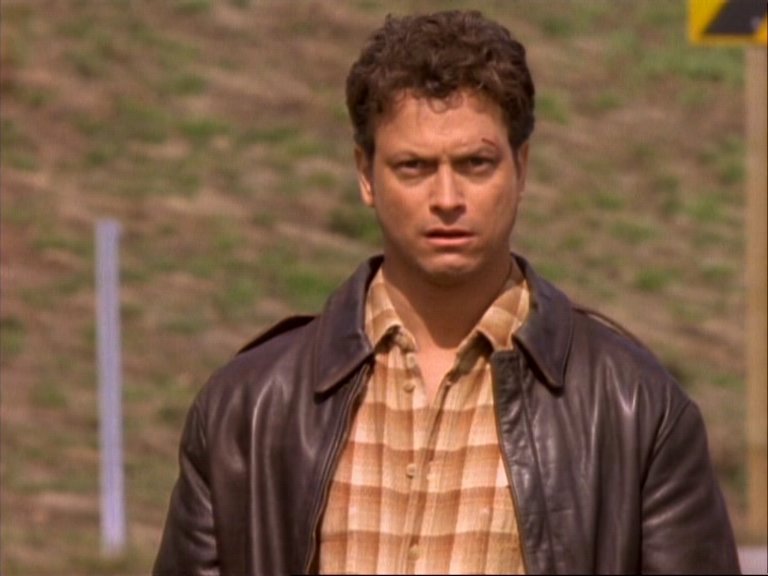
I’m a really big fan of so many of the faces we see in THE STAND — Gary Sinise, a brunette Molly Ringwald, Rob Lowe, and the always-perfect Miguel Ferrer. We even see a Kathy Bates cameo! I feel like I constantly attribute the best parts of these series to the acting, but THE STAND has some of the best so far. My favorite scenes throughout the first two parts were the ones where we see Stu at the CDC facility, his frustration and anger translating effortlessly into the viewer and I found myself feeling exasperated on his behalf. In fact, watching this made me want to watch more of his work!
Do you have a favorite performance? Do you think any parts of THE STAND so far work better than others?
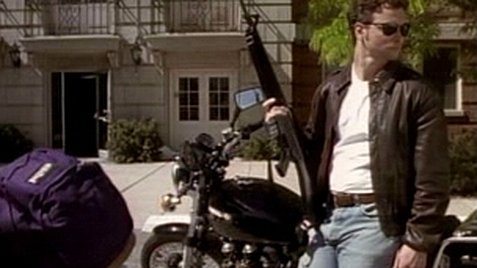
Rob Dean: “That brown sound sure do get around,” the line goes, is an example of King’s racist white-folk talk that never translates well to film. The first two parts of THE STAND work really well in establishing the world, introducing characters, and then slowly having the mystical elements become more pronounced over the three hours. I really think the music works well in these two parts—first installment opening with “Don’t Fear The Reaper” screaming out over images of the center no longer holding, then the second installment playing “Don’t Dream It’s Over” while Frannie and Harold contemplate their fates, and later with Larry playing “Eve of Destruction” on his guitar outside of a burning Des Moines. Also the thread of Larry’s hit song “Baby, Can You Dig Your Man?” weaving through the episodes and sung by different characters is a neat touch that makes it feel like an established universe.
My favorite performances are probably Ferrer, an uncredited Ed Harris as the lowbrow general (mispronouncing “Yeats”) who watches as everything comes undone around him, and Shawnee Smith as lunatic hatemonger Julie that bullies poor Nick and Tom — forcing Nick’s hand to say that they don’t need her. In a film with only a few female roles, it’s not great that one of the only five or six female speaking parts is a horrible shrill of a person, but she swerves into the skid and makes it delightfully menacing in a really uncomfortable way.
I think ultimately that the budget and execution for showing the end of the world wasn’t quite there in THE STAND. Director Mick Garris keeps going between showing the extent of Armageddon through small vignettes which work great, then transitioning to larger scenes of destruction that look cheap. If there were less rioting in New York streets and more scenes of Frannie tending to her dying father, it would have a greater impact. How do you think the miniseries is doing with introducing Flagg and the rise of the two camps of people in the wake of apocalypse? Are any of the nightmare sequences effectively scary to you? Do you buy Randall Flagg as a menacing figure? Lastly — baby, can you dig your man? (He’s a righteous man!)
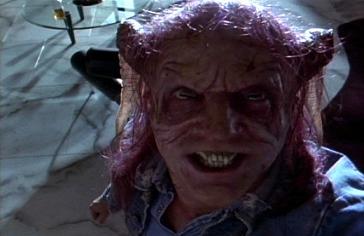
Alejandra Gonzalez: Yeah! I was meaning to talk about the music in this. It definitely makes the miniseries feel more real because it exists in a world where some of my favorite songs do. I LOVE that opening sequence, and the scene where Ferrer’s character is riding in a convertible blasting ZZ Top is great. I agree with how Larry’s song being threaded through the episodes is a small but important detail that helps to keep the miniseries feeling pretty even and consistent.
I completely see where you’re coming from in regards to the budget and execution. The small vignettes feel super-believable to me, and I feel like if there were to be an apocalypse in real life, it would feel the way it does during those parts. The scenes that are supposed to feel more epic do fall a little flat because of their execution, but it’s not something that turns me off to the miniseries at all.
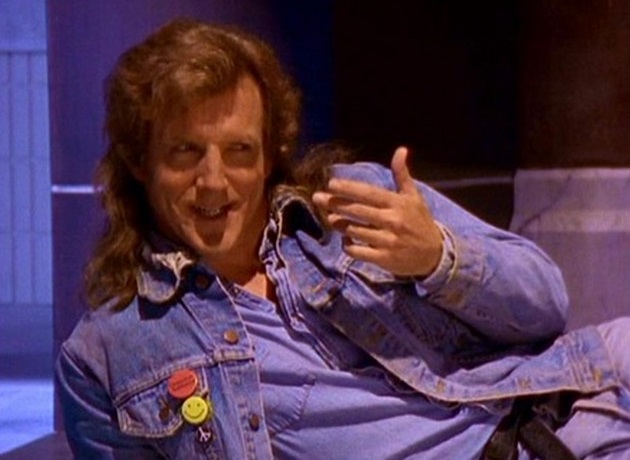
As for Flagg, I have… mixed feelings. I can’t take his haircut seriously, and he reminds me a lot what the love child of evil Cooper and Bob from TWIN PEAKS would look like. They also keep referring to him as a “dark man,” which I know isn’t a racial thing, but it still strikes me as a little weird. The nightmare sequences are only scary to me because some of them remind me of haunted corn mazes, and there’s a moment where Randall’s eyes go red that looks so bad that it’s terrifying.
I hope these don’t sound like I’m bashing these first two parts of THE STAND, I genuinely am enjoying them and I think we’re finally coming up from our GOLDEN YEARS period… hopefully the streak continues with the next parts!

— ALEJANDRA GONZALEZ AND ROB DEAN.
Tags: Adam Storke, Bill Fagerbakke, Chuck Adamson, Columns, Corin Nemec, Ed Harris, Gary Sinise, Hope Marie Carlton, Jamey Sheridan, Joe Bob Briggs, John Bloom, John Landis, Kareem Abdul-Jabbar, Kathy Bates, Laura San Giacomo, Leo Geter, Matt Frewer, Mick Garris, Miguel Ferrer, Molly Ringwald, Moses Gunn, Ossie Davis, Ray McKinnon, Ray Walston, Rob Lowe, Ruby Dee, Sam Raimi, Shawnee Smith, Stephen King, Tom Holland, Troy Evans, TV, ZZ Top

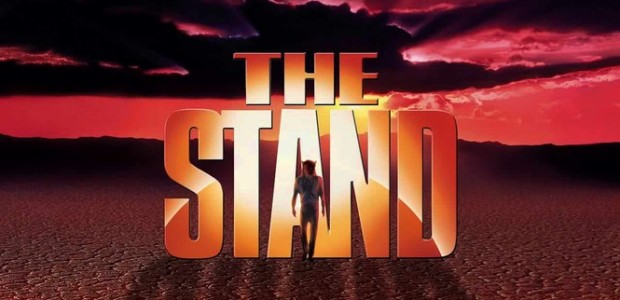
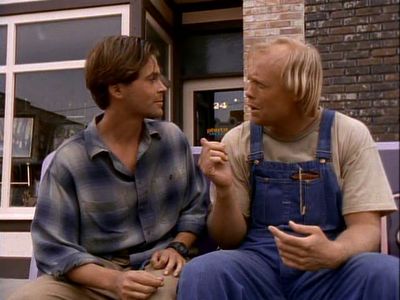
That mispronunciation on the General’s part made zero sense. I don’t know where you got the impression, other than the mispronunciation itself, you got the idea that the General was a “lowbrow”. Every indication was that he was nuts rather than uneducated. If that single fluff was the one thing that was supposed to make appear an intellectual lightweight, then I have to say it was pretty careless and inconsistent on the writer’s part that all the General’s, other lines, if anything, show him as being anything but a dim bulb.